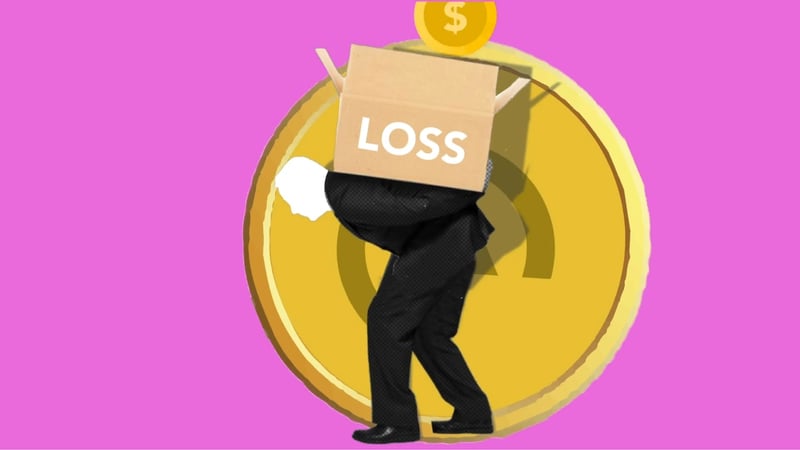Similar to legal malpractice suits, uncovered medi...
 A business owner’s worst nightmare is having to close the business suddenly because a fire has broken out on the premises. Once the firetrucks have left, there will be many bases to cover—how to keep the business running until the building can be reoccupied, how to pay the employees, and most importantly, how to pay the bills when the stream of revenue halts.
A business owner’s worst nightmare is having to close the business suddenly because a fire has broken out on the premises. Once the firetrucks have left, there will be many bases to cover—how to keep the business running until the building can be reoccupied, how to pay the employees, and most importantly, how to pay the bills when the stream of revenue halts.
A fire is just one example of a serious event that could cause an interruption in your business. Business interruption insurance could save the day if the worst happens. To that end, we’re outlining what every business owner needs to know about business interruption insurance and how it protects against unexpected financial losses.
Business interruption insurance is designed to compensate business owners if they must shut their business down unexpectedly due to a covered loss.
Business interruption insurance may be included in a commercial policy or business owner's policy (BOP), or it may be available as an add-on to a commercial policy.
Business interruption insurance protects businesses against losses during the restoration period. This is the period of time it takes to get the business back up and running. It covers the following expenses:
As with most types of insurance, business interruption isn’t entirely comprehensive. Policies carry specific exclusions that business owners must be aware of.
Most policies state the following exclusions on a business interruption policy:
To help make clear the types of situations that trigger business interruption coverage, let’s review some examples. We earlier highlighted an example of a fire breaking out in a business, but other tragedies can occur that can shut your business down unexpectedly.
Common causes of a covered shutdown include fire, hurricanes, tornadoes, and other catastrophic natural disasters. Another situation could be a tree falls on a building making it unsafe for employees or customers to enter. Also, governments and civil authorities may need to close the only road that leads to your business for the safety of the public, forcing you to shut down your operations.
The examples provided here would be covered losses under your commercial insurance policy, and business interruption insurance would apply if you’ve purchased it.

The level of coverage you need is based on how much your business stands to lose in the event of a shutdown. Your insurance agent can assist you by reviewing your gross earnings and future revenue projections.
It’s important to estimate figures as closely as possible, as a business interruption policy won’t pay more than the time limit stated in your policy. If the actual expenses are over the limit, you’ll have to pay for them out of your pocket.
In deciding the appropriate level of coverage, consider the following:
The cost of business interruption insurance is based on several factors including the following:
Businesses that are in geographical areas where natural disasters such as wildfires and hurricanes may have to pay a bit more for coverage.
The following tips highlight some of the most important information business owners need to know about buying business interruption insurance:
While business interruption insurance may not cover absolutely everything, it may be enough to continue running the business temporarily and minimize your out-of-pocket expenses significantly. In essence, business interruption insurance could prevent your company from going bankrupt and shutting down permanently.
Our commercial insurance agents at Leap Carpenter Kemps are happy to tell you more about how business interruption insurance can protect your business. Give us a call today at 209-384-0727 to learn more and get a quote for your business.
Similar to legal malpractice suits, uncovered medi...
You get all the benefits and advantages of being a...
Natural disasters and crimes can impact a business...
Leap | Carpenter | Kemps Insurance Agency provides Commercial Business Insurance, Employee Benefits, Life and Health Insurance, and Personal Insurance to all of California, including Merced, Atwater, Los Banos, Mariposa, Madera, Fresno, Modesto, Turlock, and Stockton.
CA License Number 0646081 | Licensed to do business in California, Arizona, Hawaii, Idaho, Montana, Nevada, North Carolina, Oklahoma, Oregon, Virginia, West Virginia and Washington.
© Copyright 2023 Leap | Carpenter | Kemps Insurance Agency — Privacy Policy | Terms & Conditions.
Merced Office
3187 Collins Drive
Merced, CA 95348
Phone: (209) 384-0727
Additional Contacts
Toll Free: (800) 221-0864
Fax: (209) 384-0401